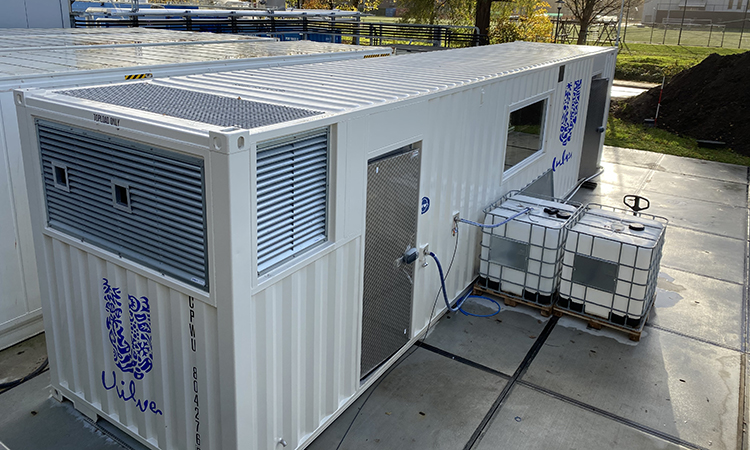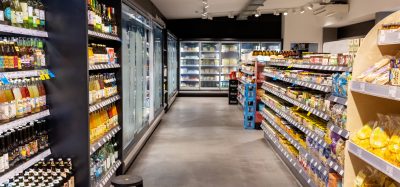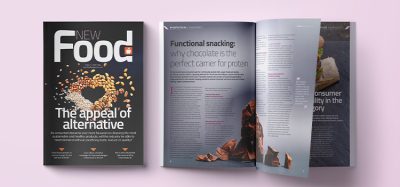Unilever trials “nano factory” inside shipping container
- Like
- Digg
- Del
- Tumblr
- VKontakte
- Buffer
- Love This
- Odnoklassniki
- Meneame
- Blogger
- Amazon
- Yahoo Mail
- Gmail
- AOL
- Newsvine
- HackerNews
- Evernote
- MySpace
- Mail.ru
- Viadeo
- Line
- Comments
- Yummly
- SMS
- Viber
- Telegram
- Subscribe
- Skype
- Facebook Messenger
- Kakao
- LiveJournal
- Yammer
- Edgar
- Fintel
- Mix
- Instapaper
- Copy Link
Posted: 19 January 2021 | Joshua Minchin (New Food) | No comments yet
Unilever has designed a factory to run within a shipping container, with just an electricity cable and water hose required to produce hundreds of tonnes of product every day.


This is all that is required to run a food factory, according to Unilever
Unilever engineers have designed a food factory which operates within a 40ft sea container, creating flexible production lines that can be moved all over the world.
The digital factory is currently being trialled in Wageningen, The Netherlands. From the end of this month, the prototype will produce liquid bouillon for Unilever’s Food Solutions business, with the possibility of expanding production to mayonnaise, ketchup and ice cream in the future.
Unilever says the concept of the travel factory means that it can be shipped to new locations across the world, making the most of local ingredients. This flexibility and localised production will allow quicker responses to changing demand in local markets, meaning products can be rolled out faster. The model can also be used to produce small volumes for product trials, without the need for mass production lines. This results in low material waste, according to the food manufacturing giant.
The agile travel factory is remotely run by a central Platform Eco System (PES) that uses live production data. Sensors on the line feed data back continuously, so adjustments can be made, and any problems quickly fixed. The container is fitted with all-in-one utility capabilities, requiring just one electricity cable and a single water hose to operate. It covers the end-to-end automated process, from raw materials to cooking through to packaging, to produce 300-tonnes of liquid seasoning per eight-hour shift.
If the travel factory trial is successful, the company says the innovative production solution could expand to other parts of the Unilever portfolio, including beauty and home care products. The company also plans to lease, rent or sell many of these production units to young entrepreneurs, opening up the opportunity for new ways of working to others.
“This travel factory reflects a new dynamic model where thousands of nano factories could be run from a central system, allowing us to have flexible production lines wherever and whenever needed,” said Olivera Trifunovic, Unilever Engineering Manager and project lead of the travel factory.
“I’m incredibly proud of our team who have worked so hard, and so quickly, to bring this start-up to life.”
Related topics
Equipment, New product development (NPD), Processing, Product Development, Research & development, Supply chain, Technology & Innovation, Trade & Economy








